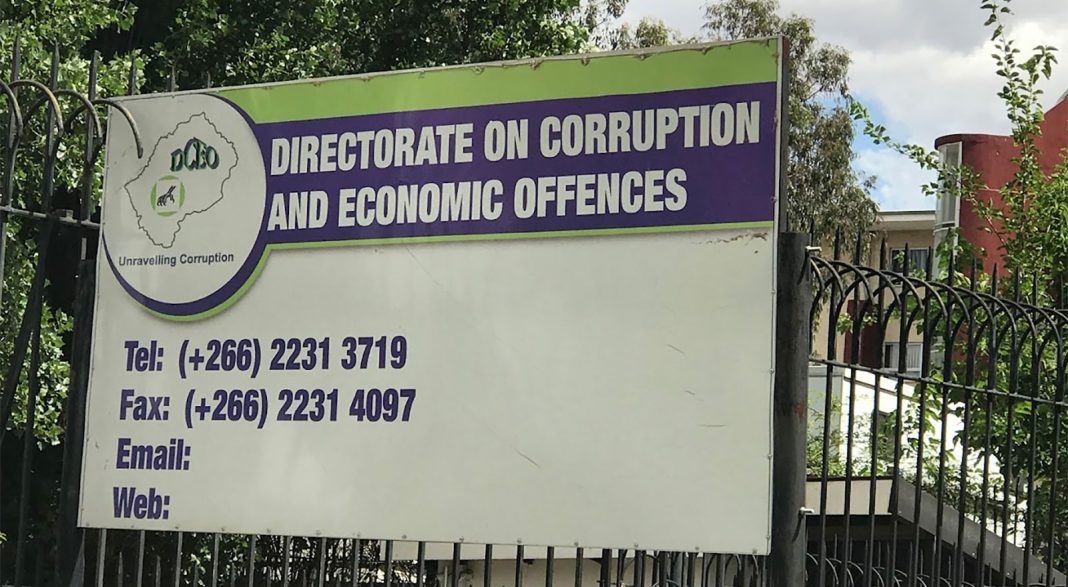Local business owners and associations are doubtful that the Ministry of Trade, Industry, and Business Development will be able to implement its decision to stop issuing and renewing licenses for foreign-owned enterprises in line with government policy, starting from January 2026.
They described the ministry’s commitment and plans to implement this policy as “wishful thinking” and “hypocrisy”.
Local business people said indigenous entrepreneurs would not be ready to take over businesses left by foreigners as they were not informed in time and do not have the financial muscle.
In separate interviews this week, they also alleged that the ministry was not likely to succeed as some foreign nationals register their enterprises using some Basotho whom they give bribes of up to M20 000.
The ministry is aware of this but not doing anything about it, they said.
The ministry recently indicated that is ready to implement Section 34 of Business Licensing and Registration Regulations 2021, following a resolution by the National Assembly on May 17, 2024.
The policy has been in operation with effect from August 1, 2022 except for section 34, which reserves businesses for Basotho.
According to the Business Licensing and Registration Regulations legal notice of 2020, 47 activities are reserved for indigenous Basotho.These include transport; cleaning; repairing and retail motors sales; growing and selling fruits and vegetables; pharmaceutical wholesaling and retailing; real estate; retail of animal feeds; supply of fuel and retail of hardware.
Lesotho Liquor and Restaurant Owners Association (LLROA) president, Motseki Nkeane, said he is not hopeful that the ministry will stop issuing and renewing licences for foreign-owned businesses from January as planned.
Nkeane noted that this is not the first time the ministry has mentioned that it would take action, but nothing happened.
He explained that business associations and the ministry had sat down before to discuss the implementation of the indigenisation policy.
Nkeane said they had argued that Basotho were ready to take over some of the reserved sectors and needed more time on others.
“Locals are ready to take over businesses like taverns, cafés, restaurants and mini markets,” he pointed out, adding they needed more time to prepare themselves for bigger ventures such as supermarkets and hardwares, which are capital intensive.
Nkeane said they were worried that foreign nationals still run cafés and taverns which are reserved for Basotho.
On his part, Basotho National Party (BNP), Machesetsa Mofomobe, said Section 34 is very clear on which businesses should be run by local people.
He said Basotho would not be able to take over come January because they do not have money, suggesting government should set up a partial credit fund to assist them.
“It is therefore a lie. There is only a month left before foreigners are told to leave businesses reserved for Basotho, it is highly impossible,” Mofomobe added.
The public relations officer for the Ministry of Trade, Industry, and Business Development, Lihaelo Nkaota, said their push to phase out foreign-owned businesses in selected sectors is aimed at encouraging Basotho to participate in the economy.
Nkaota explained that the government wants more business opportunities to be in the hands of local entrepreneurs.
“We see potential for Basotho to actively engage in business, especially in the selected opportunities,” she told theReporter in an interview on Tuesday this week, adding that many local business owners had expressed readiness to take over.
She said business associations were formally notified in June about the changes coming into effect in January 2026.
Addressing concerns about foreigners registering businesses under Basotho, Nkaota warned that the Business and Licensing Registration Act imposes fines of up to M10,000and five years’ imprisonmentfor offenders.
She said the ministry’s compliance division will be strengthened to ensure frequent inspections.
“We also appeal to Basotho to uproot corruption whenever they see it,” she pleaded.
Nkaota emphasized that the ministry is actively encouraging foreign business owners to sell their enterprises to Basotho. “Our goal is to avoid leaving any vacuum where foreigners vacate premises, but no Mosotho is ready to take over, which would halt business activity.”
She also revealed that the ministry embarked on inspections of foreign-owned enterprises on the reserved list from June 10- 28, 2024 in Maseru district around the Bus stop area, Seputana, Industrial area, Cathedral Area and Borokhoaneng.
“This was in line with the approved implementation plan formulated by a task team in October 2023 in Thaba Bosiu. The team is composed of private sector and government ministries and agencies,” she said.
According to the audit, there was consensus amongst the team members that implementation of the reservation list – commonly referred to as S.34 – was likely to disrupt the market conditions, affect employment, the supply of goods, services and value chains.
It was prudent therefore, to undertake an inspection to investigate three major effects of this policy initiative: the current proportion of foreign owned businesses in the reserved category, their contribution to the gross domestic product and employment as well as their legitimacy, devise mitigation measures and a transition plan.
The reported added that the key findings of these inspections were consistent with the hypothesis that Lesotho’s commercial space is dominated by foreign owned businesses.
A total of 106 businesses were inspected in the retail sector and 80 of these were owned by foreign nationals. It was also discovered that they account for 90% of the jobs in this sector reserved for the locals.
Foreign owned businesses also account for the largest proportion of migrant labour in this sector. There were 123 foreign owned businesses that employed 119 expatriates while Basotho owned enterprises employed only four foreigners.
The audit noted that traditionally foreign owned businesses belonged to the Chinese and Indians but lately, there is an observed entrance of other nationals.
It also unearthed that there is a substantial number of foreign owned businesses operating in the reserved category. Sixty-one percent of the inspected businesses were in the reserved category and 81.54% of those businesses were foreign owned. Basotho businesses account for only 18.46% of the reserved businesses.
“There are 13 businesses whose owners were naturalised. There is likelihood of this figure going up because there were others who claimed that they were naturalised and will bring their documentation,” the audit added.








